Shows

מולד הלבנה-אבי רוטפרק-51 -פרק מיוחד - אני מתראיין אצל אייל רוזן חלק אבפרק מיוחד זה של הפודקאסט שלי, אני, אבי רוט, מטפל בתחום ההתמכרויות, מתארח ומתראיין על ידי קולגה וחבר, אייל רוזן - מאסטר ב-NLP, מרצה ומנחה סדנאות מוביל.
בשיחה עם אייל, אני חושף את שיטת הטיפול הייחודית שפיתחתי לאורך שנות עבודתי בתחום ההתמכרויות. אני מסביר כיצד הגישה שלי משלבת ידע מקצועי עם תובנות אישיות עמוקות, ומתמקדת לא רק בהפסקת ההתמכרות, אלא גם בטיפול בשורשי הבעיה ובבניית חיים מלאים ומשמעותיים עבור המטופלים שלי.
במהלך הראיון, אני מדגיש את חשיבות ההסתכלות ההוליסטית על המכור כאדם שלם, ולא רק כ"מכור". אני מתאר כיצד גישה זו משפיעה על תהליך הטיפול ועל יחסי המטפל-מטופל, ומשתף מניסיוני האישי והמקצועי.
בנוסף, אני מציג את נקודת מבטי הייחודית על עולם ההתמכרויות, מאתגר תפיסות מקובלות ומציע דרכים חדשניות להתמודדות עם אתגרי ההחלמה.
הפרק הזה מספק תובנות מעמיקות לכל מי שמתמודד עם התמכרות, בני משפחה של מכורים, ואנשי מקצוע בתחום. זוהי הזדמנות להציץ אל תוך עולמי המקצועי ולהבין את הפילוסופיה הטיפולית שמאחורי עבודתי בתחום ההתמכרויות.
ניתן לפנות לייעוץ ב 052-62514677
את אייל ניתן למצוא בקישורים הבאים: https://www.thoughtlines.co.il
https://www.facebook.com/profile.php?id=61559905766441&mibextid=JRoKGi
https://www.facebook.com/profile.php?id=61556316235961&mibextid=LQQJ4d
2024-07-2353 min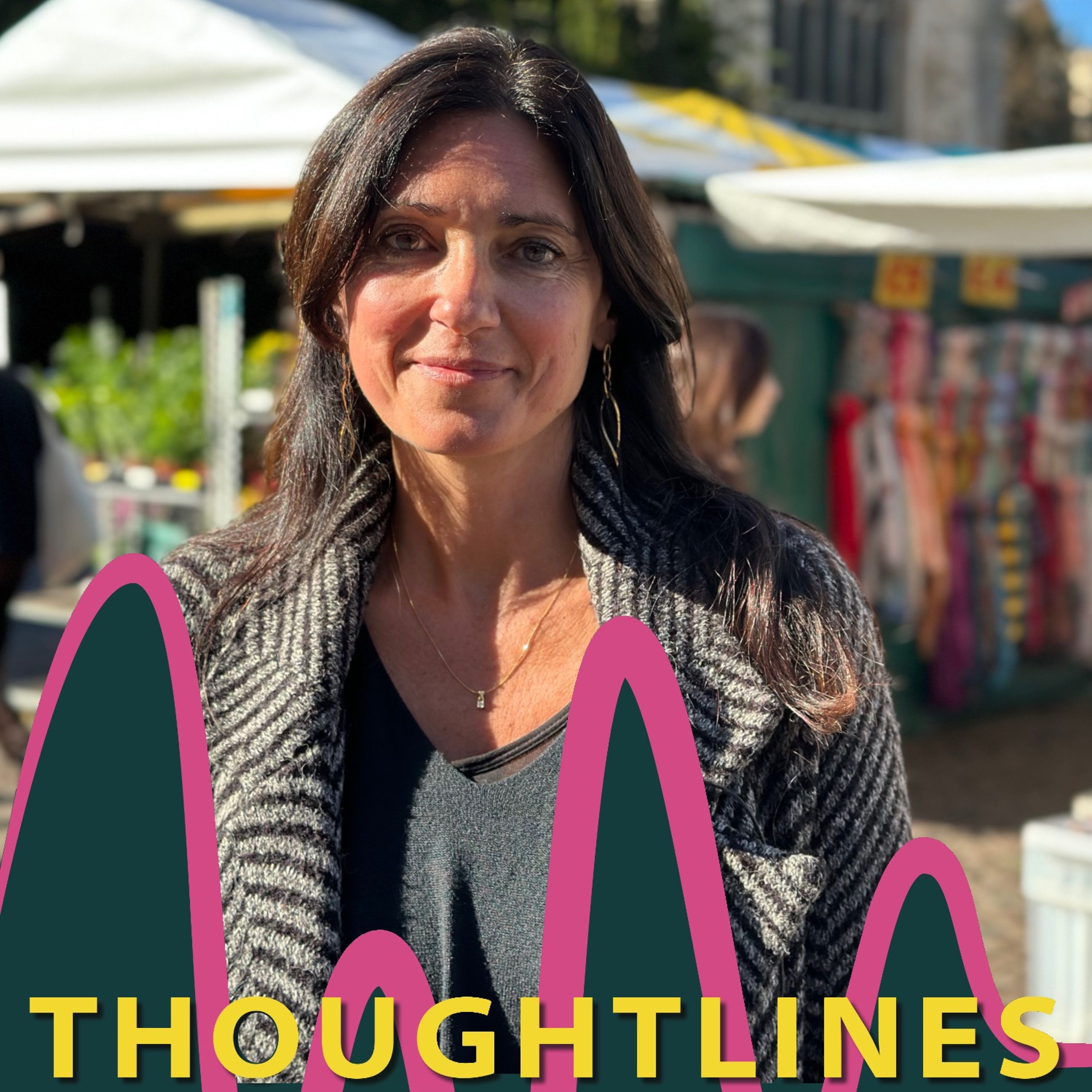
ThoughtlinesSeries 2 Ep 3: We are dialogue + ethics with Dr Frisbee SheffieldWhen did we forget how to talk to each other properly? And how to think difficult things through, together? Or has this always been controversial, fraught, and sometimes even deadly?
The importance of honest, frank, respectful dialogue among citizens was a belief that Socrates lived and died for back in Ancient Greece. And for Dr Frisbee Sheffield – Associate Professor of Classics at Cambridge and Fellow of Downing College – it is a belief that needs to be re-examined and promoted today.
Her recent fellowship at CRASSH saw her bring Socrates and Plato alongside 20th century philosopher Hannah Arendt to ask ‘what’s so goo...
2023-04-2637 min
This Warriors LifeFonzie Flashback 2 - Getting it wrong for the right reasons? (with TeetsNRL)With the TWL podcast about to click into gear for 2023, Fonzie travels back in time 12 months to a conversation with TeetsNRL as they preview the 2022 season. Fonzie gets pretty much everything wrong here :), but the thoughtlines might not be as far off as they seemed as we head into 2023...Visit This Warriors Life's website, Twitter and Facebook for more Hosted on Acast. See acast.com/privacy for more information.
2023-02-101h 50
MITI RadioHigher frequency but poor compoundsHigher and lower are comparatives and references from a zero, which is akin to 0 to represent nothing and also to represent infinite. Higher frequency does not guarantee infinite. The scene of the blue bird who sang herself to such high frequency that she burst in the movie, Shrek II, comes to mind. Her eggs got eaten because she was not bird mother anymore to the eggs. Ouch. But that’s how MI world sees these concerning thoughtlines of higher frequency versus lower frequency and energy-syncing and whatnots. Counter to popular beliefs of certain groups of people maybe but MI World op...
2022-10-0730 min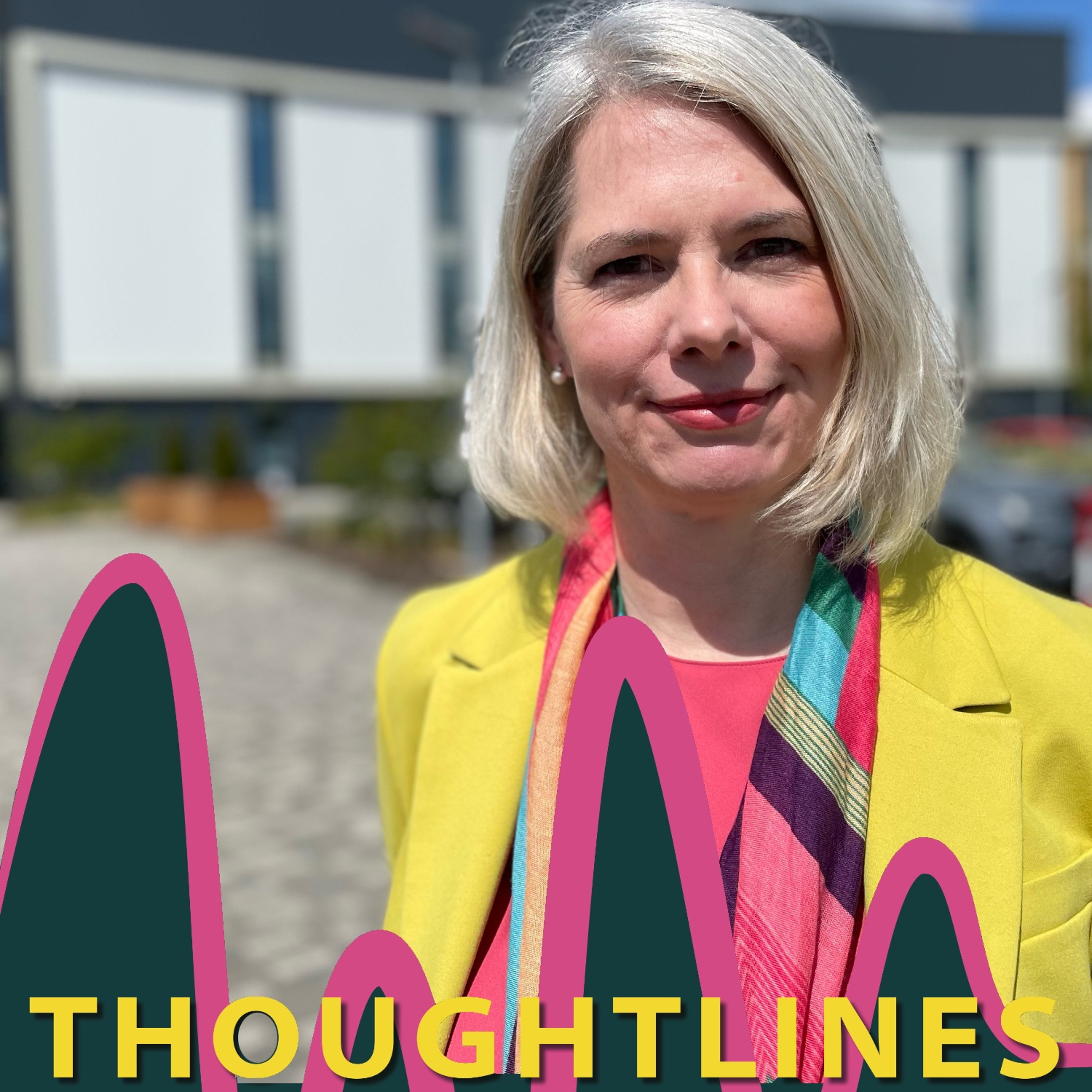
ThoughtlinesSeries 2 Ep 2 - We are innovation + communication, with Professor Gina NeffIn this episode we talk tech, power, and the endless hell of phone storage with sociologist Professor Gina Neff.
As the Executive Director of the Minderoo Centre for Technology and Democracy at Cambridge, and the Professor of Technology and Society at Oxford, she briskly rejects the mythology of a ‘lone genius’ in Silicon Valley coding every aspect of our daily lives. Instead, she champions those she calls the ‘unsung heroes’ of innovation – essentially everyone struggling to make a “better, faster, new way of working” actually … work.
Her academic research spans industries as diverse as fashion, construction, and healthcare, and she’s equally at home...
2022-08-2247 min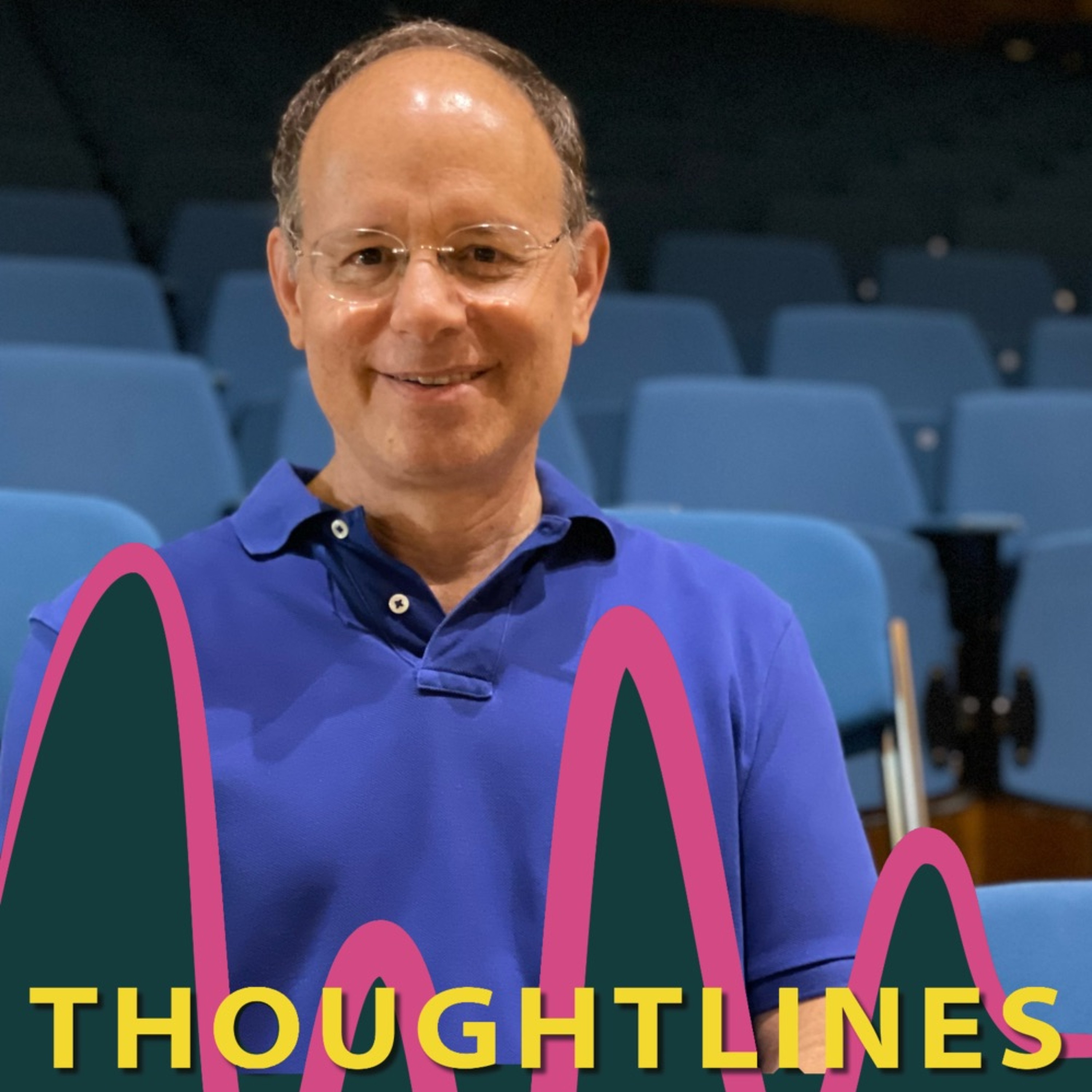
ThoughtlinesSeries 2 Ep 1 - We are music + resistance, with Professor Kenneth MarcusIn this first episode of our second season of Thoughtlines we talk about how culture fights back with historian Professor Kenneth Marcus.
As a visiting fellow at CRASSH he’s been exploring what happens when music ‘goes there’ and tackles the horror and heartbreak of war. The ongoing conflict in Ukraine and its musical resistance, rapidly going viral on social media, is effectively his project in real time. But his focus on the epic pacifist works of Arnold Schoenberg, Hanns Eisler, and Benjamin Britten reminds us that music was shaping the global human rights imagination well before now.
Not only that...
2022-07-2841 min
MITI RadioRapunzel meets Jack Sparrow!In my defence, we did not hear or know or have any reason to believe COVID existed before 2020. So, following along the same thoughtlines, I did not have reasons to believe God existed or that truelove happened outside of movies or that the whole sanatana dharma whatnots and mythology things happens to real people in real life! I have to reach my Partner and get him to Work with me in making the solutions sanely available to people so we have normal ordinary living sooner than later. H, at least, talks people’ese while I talk humanese and not many pe...
2022-03-2836 min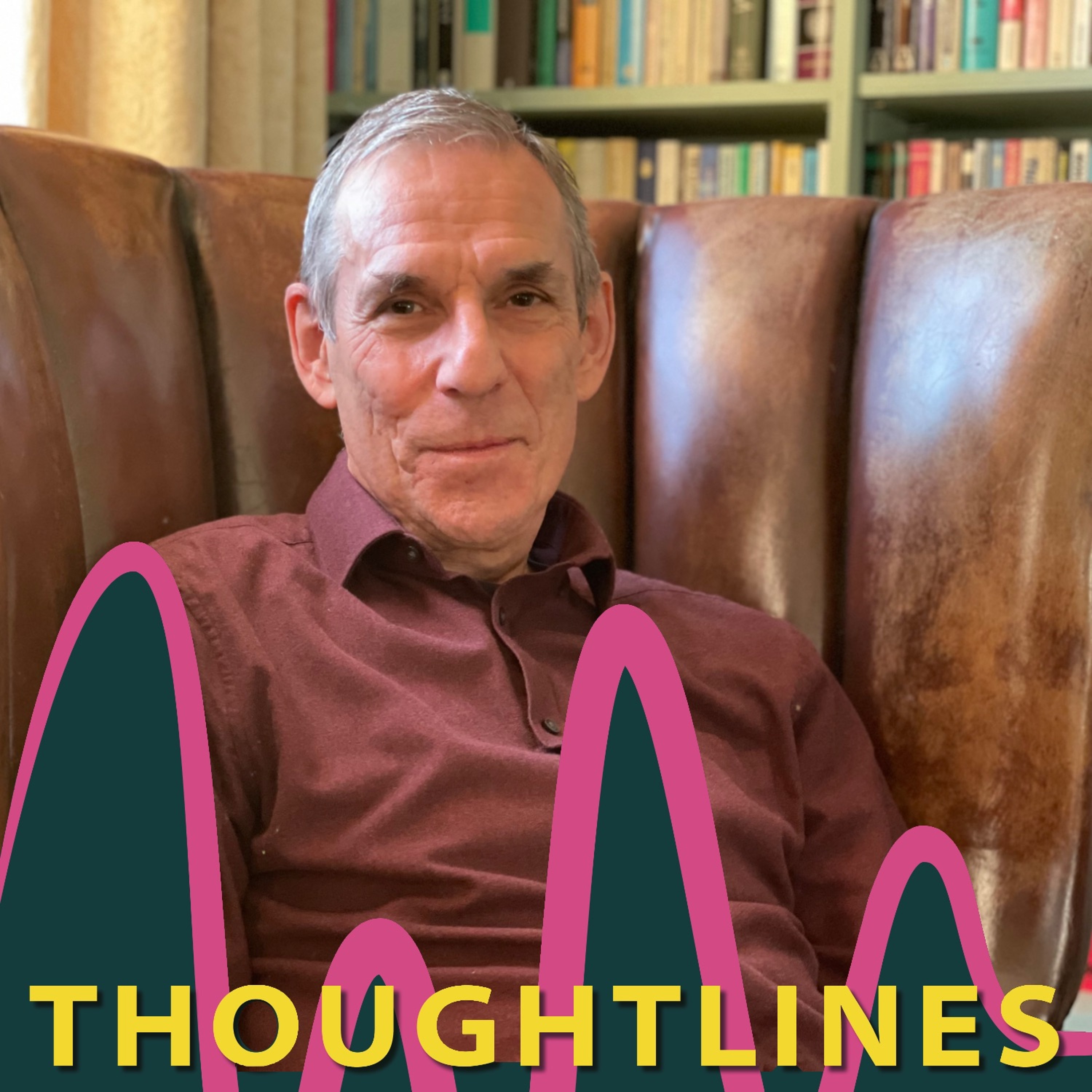
ThoughtlinesEpisode 12 - We are what we do, with Professor Steven ConnorIn this final episode of the CRASSH 20th anniversary year, we ask the centre’s Director, and Grace 2 Professor of English at Cambridge, Steven Connor, whether what we do for a living can ever, or should ever, be anything other than drudgery?
Thousands of column inches in the past year have been devoted to ‘The Great Resignation’, or ‘The Big Quit’ – a mass rebellion by millions of disgruntled employees worldwide who decided their current work just isn’t working for them any longer. Employment, then, is yet another thing to be re-worked by the COVID-19 pandemic, but less examined is why we even do...
2021-12-3143 min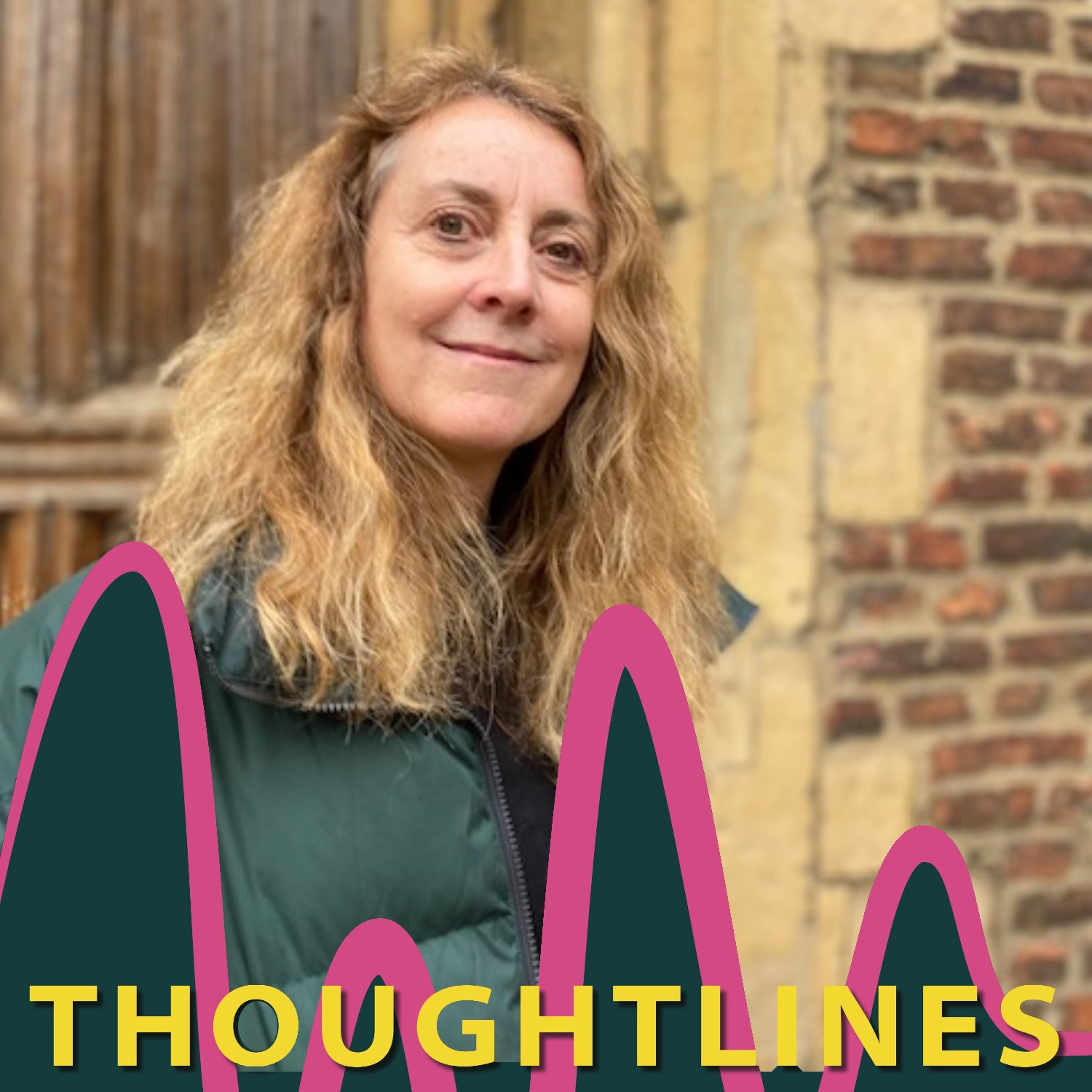
ThoughtlinesEpisode 11 - We are what we disrupt, with Trish LorenzIn this episode we answer a $100,000 question.
Writer and journalist Trish Lorenz won the global essay competition, The Nine Dots Prize, by turning anxiety about the world’s ageing population on its head and celebrating the game-changing power of Africa’s ‘youthquake’.
Part of the prize is the chance to spend a term at CRASSH, and turn that initial 3,000 word entry into a book published by Cambridge University Press. But Trish took the long way round from her home in Berlin – arriving in Cambridge via Lagos and Abuja where she found and interviewed the young Africans who best represent the energy, th...
2021-12-2136 min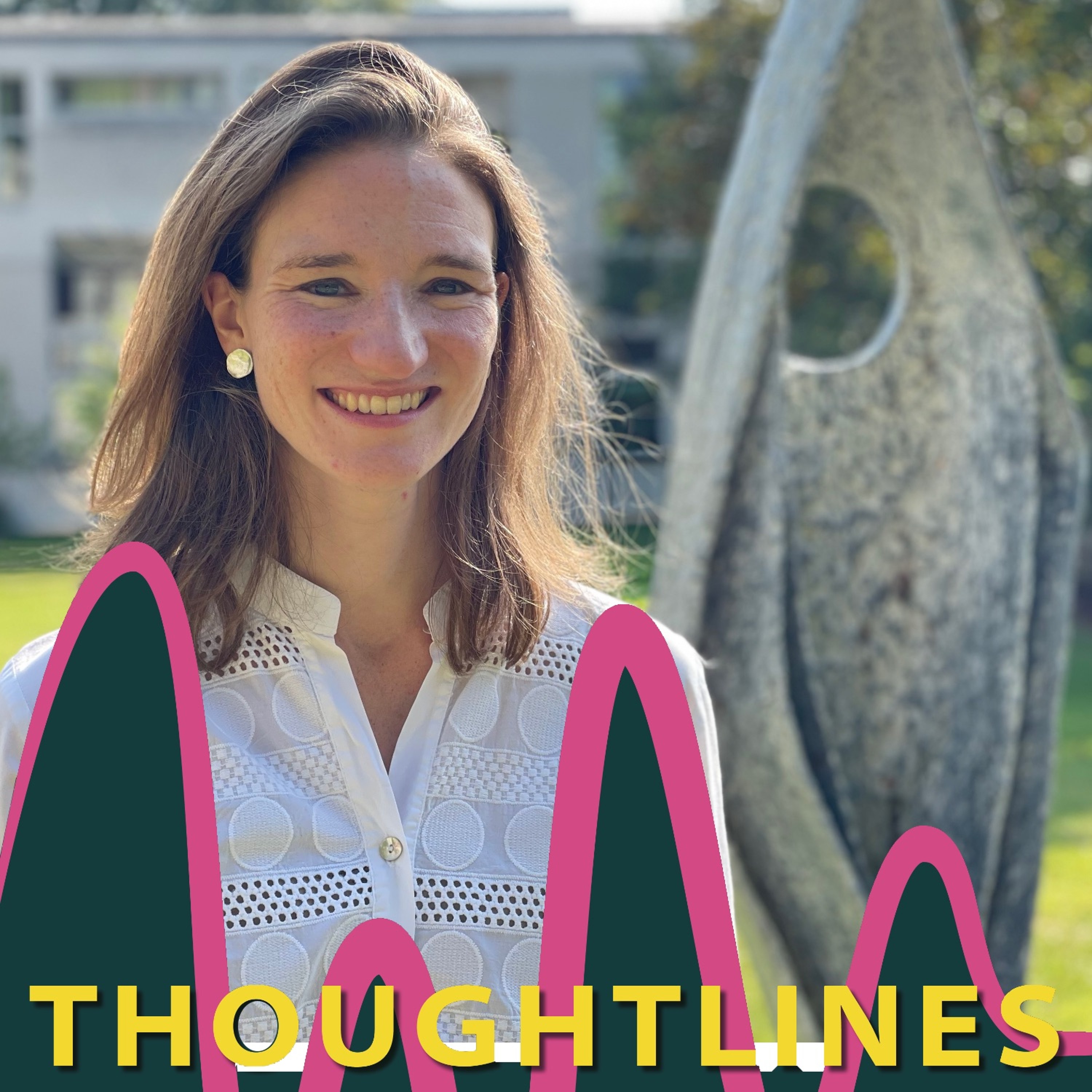
ThoughtlinesEpisode 10 - We are what we read, with Dr Charlotte LeeIn this episode we discover how words move us. Literally.
Dr Charlotte Lee is a Senior Lecturer in German at the Faculty of Modern and Medieval Languages at the University of Cambridge, but just lately she’s stepped beyond her academic boundaries to ask everyone from neuroscientists, to dancers, to tiny children, more about the transporting power of poetry.
Working in three languages, and across disciplines, her current research tries to discover how writers make us physically feel things that we only read about, and how our brain dances along to textual rhythms even when our bodies remain sitting still in...
2021-10-1939 min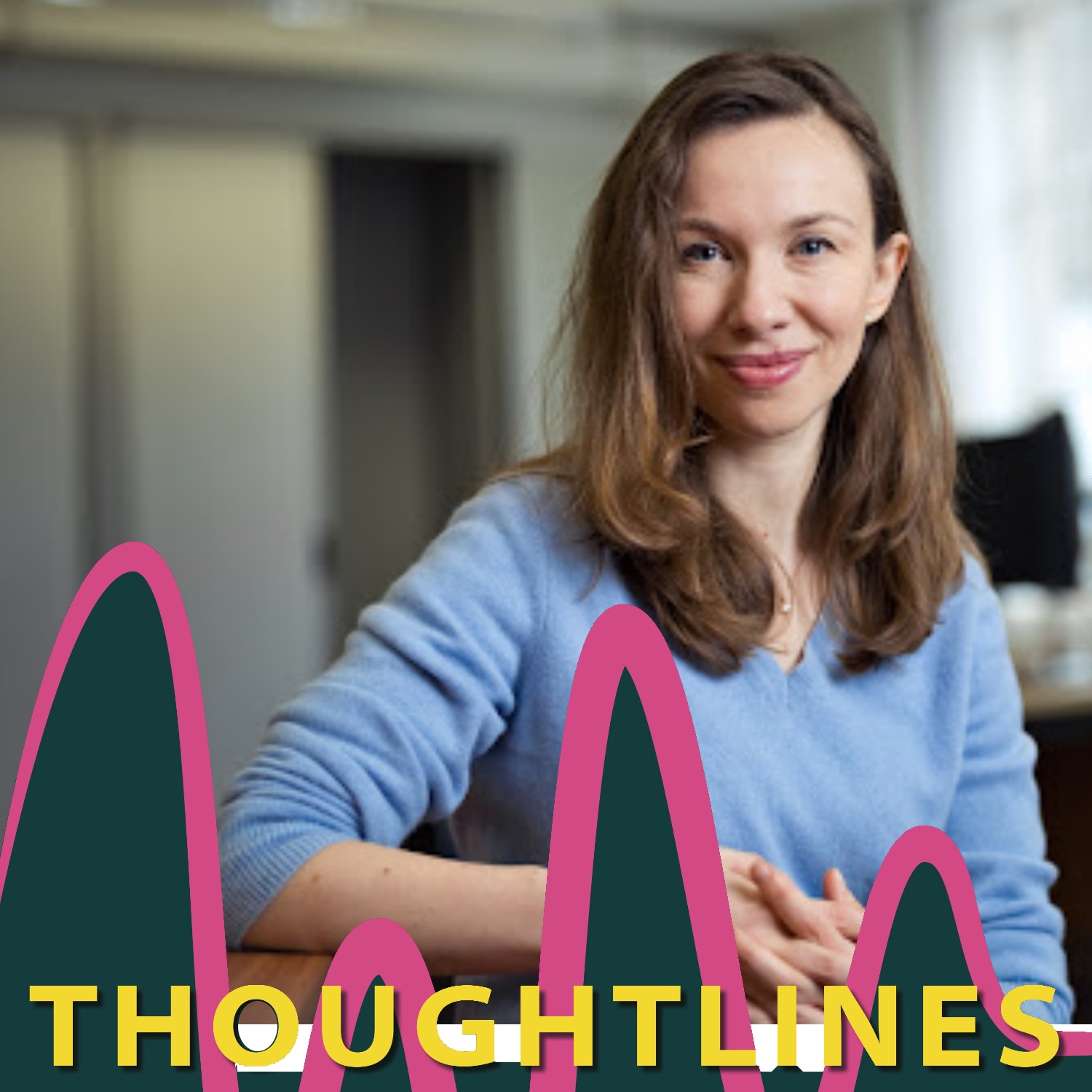
ThoughtlinesEpisode 9 - We are what we question, with Dr Anna AlexandrovaIn this episode we ask an expert on expertise what she knows for sure.
Dr Anna Alexandrova is a Reader in the Philosophy of Science at the University of Cambridge, and the principal investigator for the ‘Expertise Under Pressure’ group at CRASSH.
Her latest research is co-authored with people currently in severe financial hardship, and combines their insights and lived experiences with conventional academic approaches to articulate a more authentic, democratic understanding of what it means to truly ‘flourish’ – work which could have significant impact on the government’s current wellbeing agenda.
At a moment when expertise, globally, is under extreme pres...
2021-09-2041 min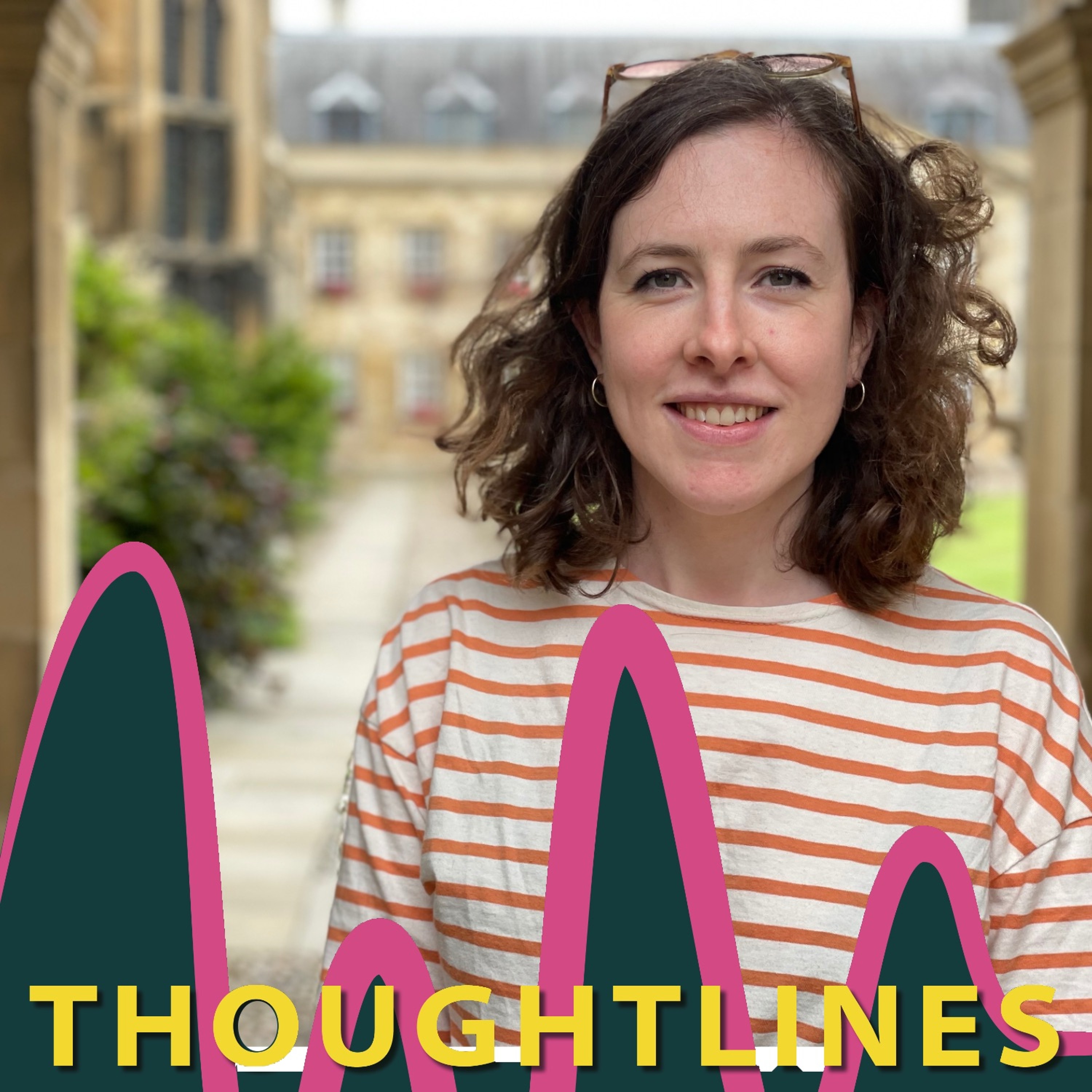
ThoughtlinesEpisode 8 - We are what we feel, with Dr Emma ClaussenIn this episode we take a long look at what the New York Times believes might be “the dominant emotion of 2021.” But what is languishing? And did we really just invent it?
Dr Emma Claussen, a British Academy Postdoctoral Fellow in French at the University of Cambridge and research associate at Peterhouse College, thinks we certainly did not, and that writers and thinkers have been battling with how to ‘beat the blah’ (or at least learn to live with it) for centuries.
So, what can voices from the Early Modern period tell us about living a ‘good’ life in uncertain times? How d...
2021-08-1837 minNo Idle FretsRe-Post of Show #176 from 10/7/2008 mp3Songs on this week's show:02:40 "Silberglicity" by Paul Silbergleit from the CD: "Silberglicity."09:45 "Felicita" by Michele Ramo and Heidi Hepler from the CD: "Felicita."16:45 "11:11 Blues" by Tim Berens from the CD: "Nortonomy."23:05 "I Wish I Knew" by Steve Herberman from the CD: "Thoughtlines."Thanks for listening.
2021-08-1700 min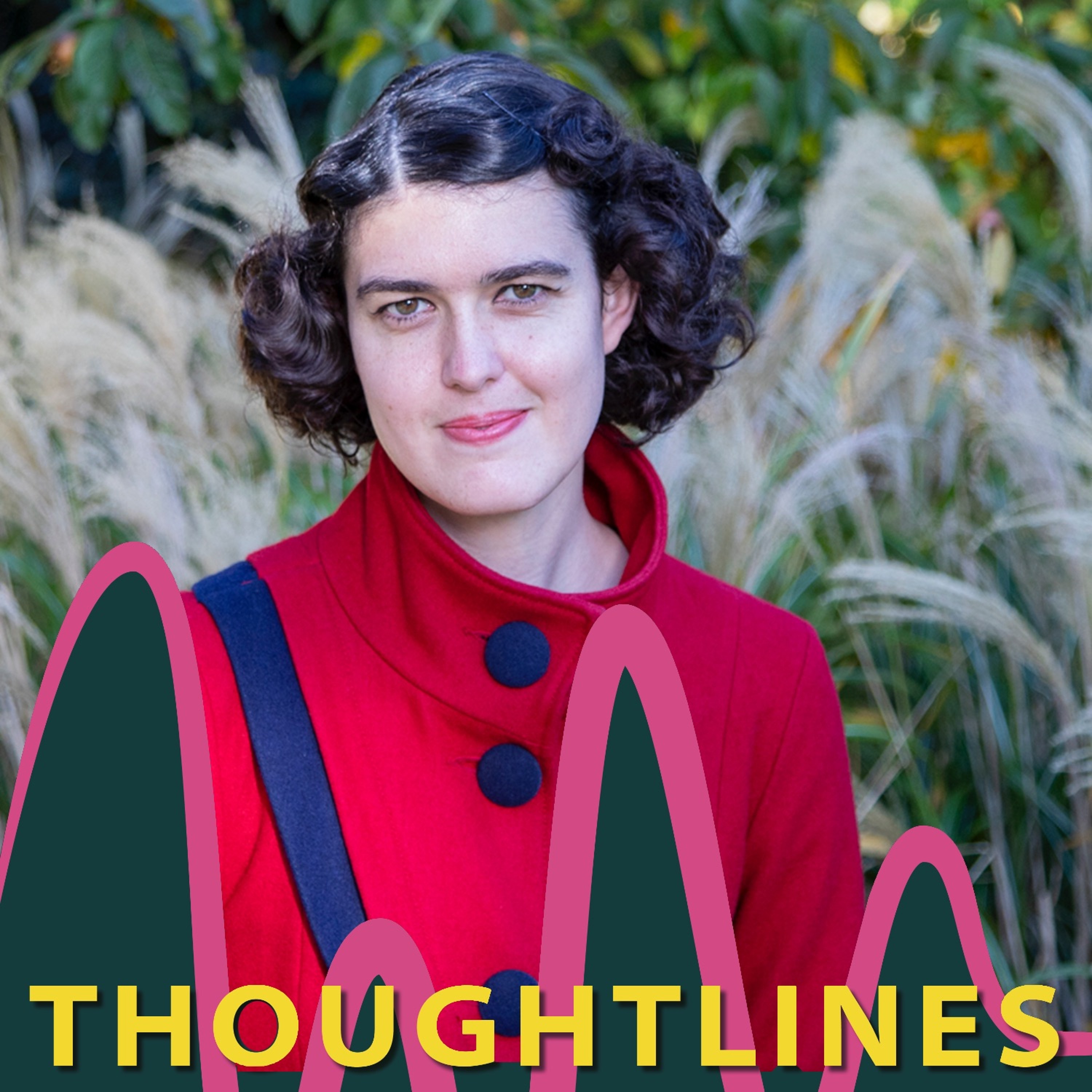
ThoughtlinesEpisode 7 - We are what we spend, with Dr Niamh MulcahyIn this episode we talk inequality, life chances, and the daily struggle to balance household budgets with Dr Niamh Mulcahy, economic sociologist at CRASSH and Alice Tong Sze Fellow at Lucy Cavendish College, Cambridge.
The financial crash of 2008, followed by the UK government's decade of austerity, and the Covid-19 pandemic has left millions of people in Britain facing a very uncertain future and holding increasingly unmanageable levels of personal debt.
What set us on such a precarious path? How can we return to what Dr Mulcahy terms "steadiness"? And how is her college addressing these challenges in its own backyard?
...
2021-07-1644 min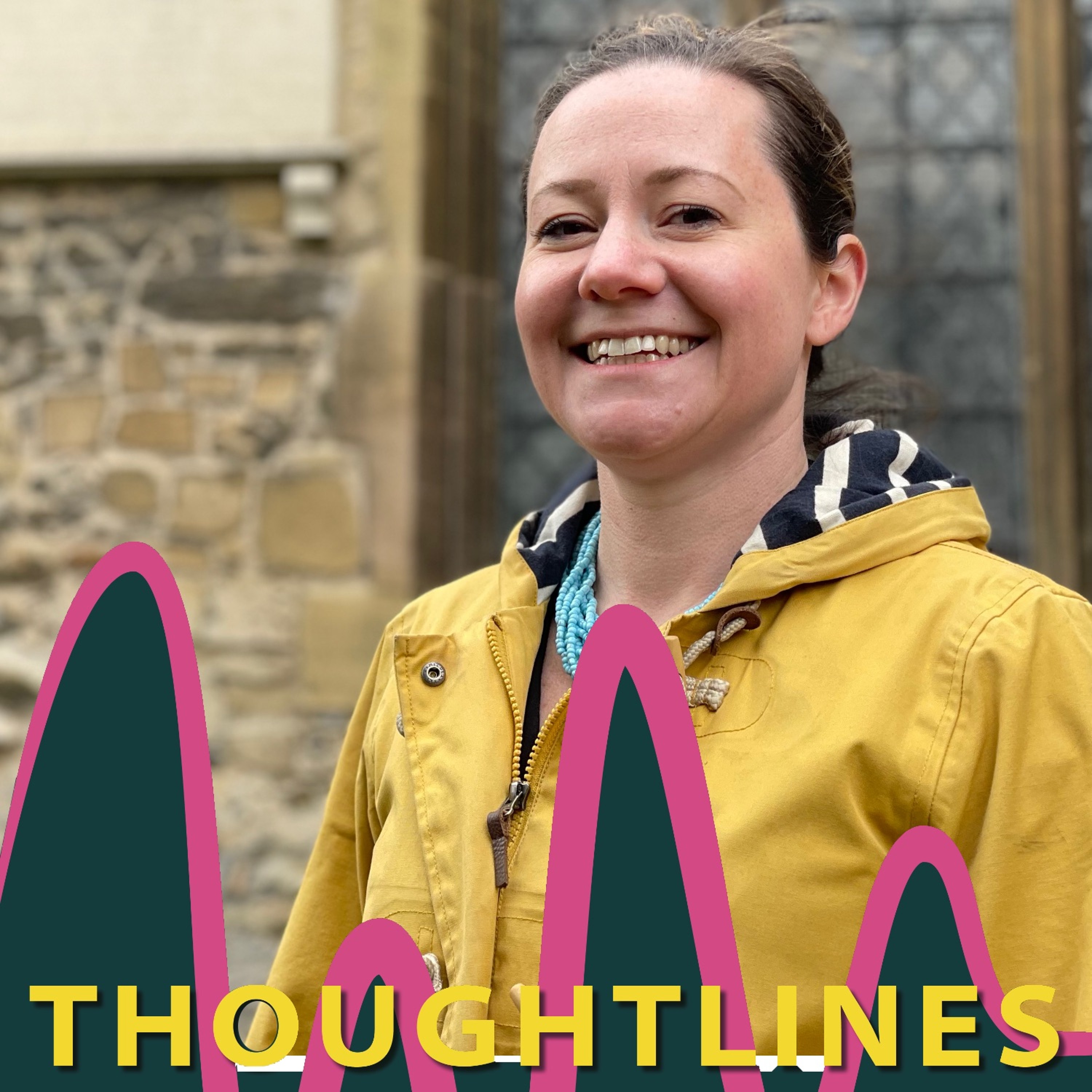
ThoughtlinesEpisode 6 - We are what we buy, with Dr Bronwen EverillIn this episode we join the dots on the global story of abolition with Dr Bronwen Everill, 1973 lecturer in History at Gonville and Caius College, Cambridge, and Fellow of the Royal Historical Society.
Why was the Cambridge connection so central to those campaigning to end the slave trade in Britain? What did these abolitionists have in common with those in West Africa and in the United States? What was the product that both drove slavery and helped early ethical consumers do their bit for the abolitionist cause? And how do we acknowledge the different types of ‘labour’ that make an acad...
2021-06-1641 min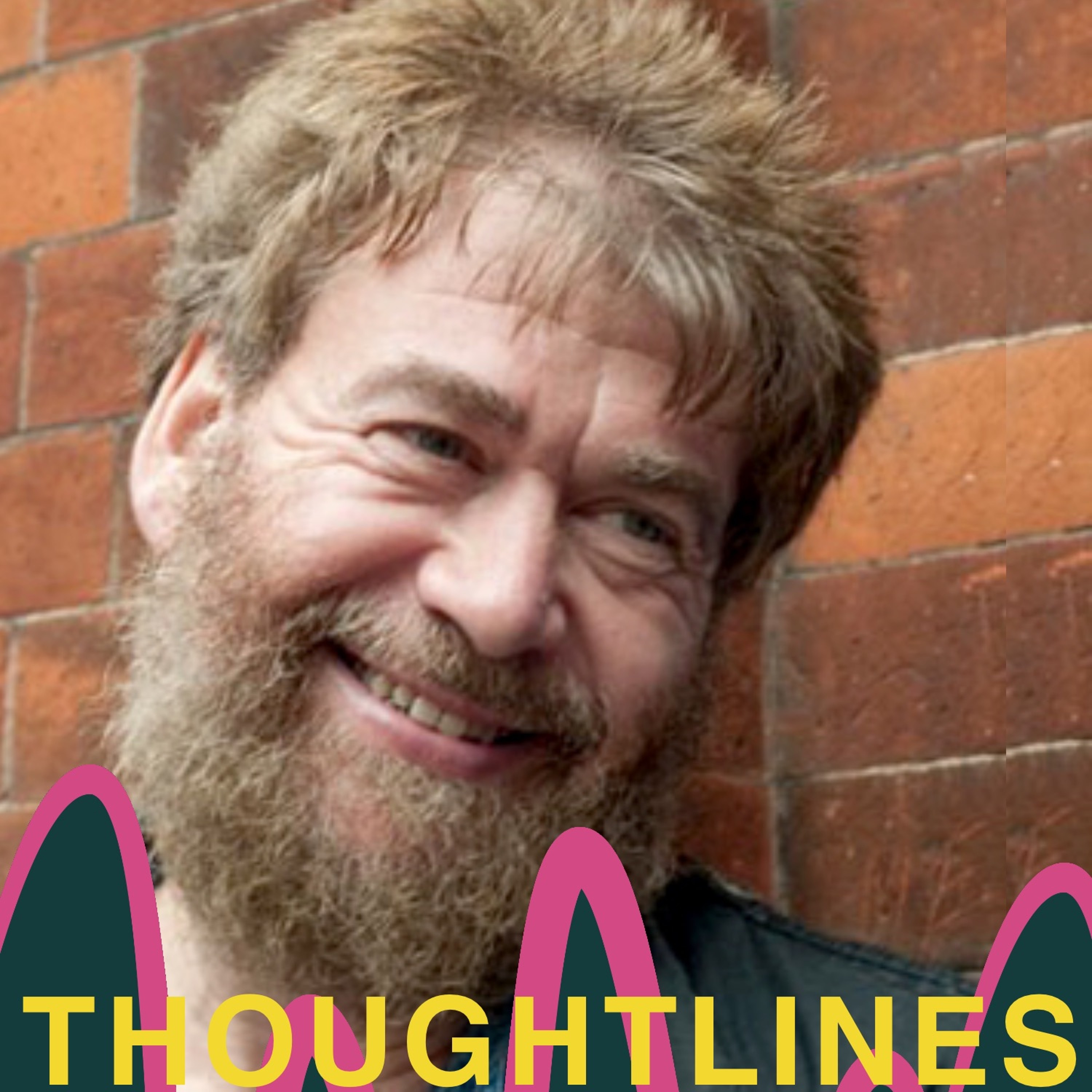
ThoughtlinesEpisode 5 - We are what we connect, with Professor Simon GoldhillIn this episode, presenter and broadcast journalist Catherine Galloway talks youth, ageing, research time, and timelessness with Professor Simon Goldhill, a former director of CRASSH, and Professor of Greek Literature and Culture at the Faculty of Classics.
We also spend time considering the life-changing power of the moment. As chair of the Nine Dots Prize Board, Professor Goldhill makes the phone call to the winner of this lucrative and prestigious biennial international essay competition, telling the astonished recipient that their ‘out of the box’ thinking has netted them $100,000, a publishing contract with Cambridge University Press, and the chance to come to C...
2021-05-2938 min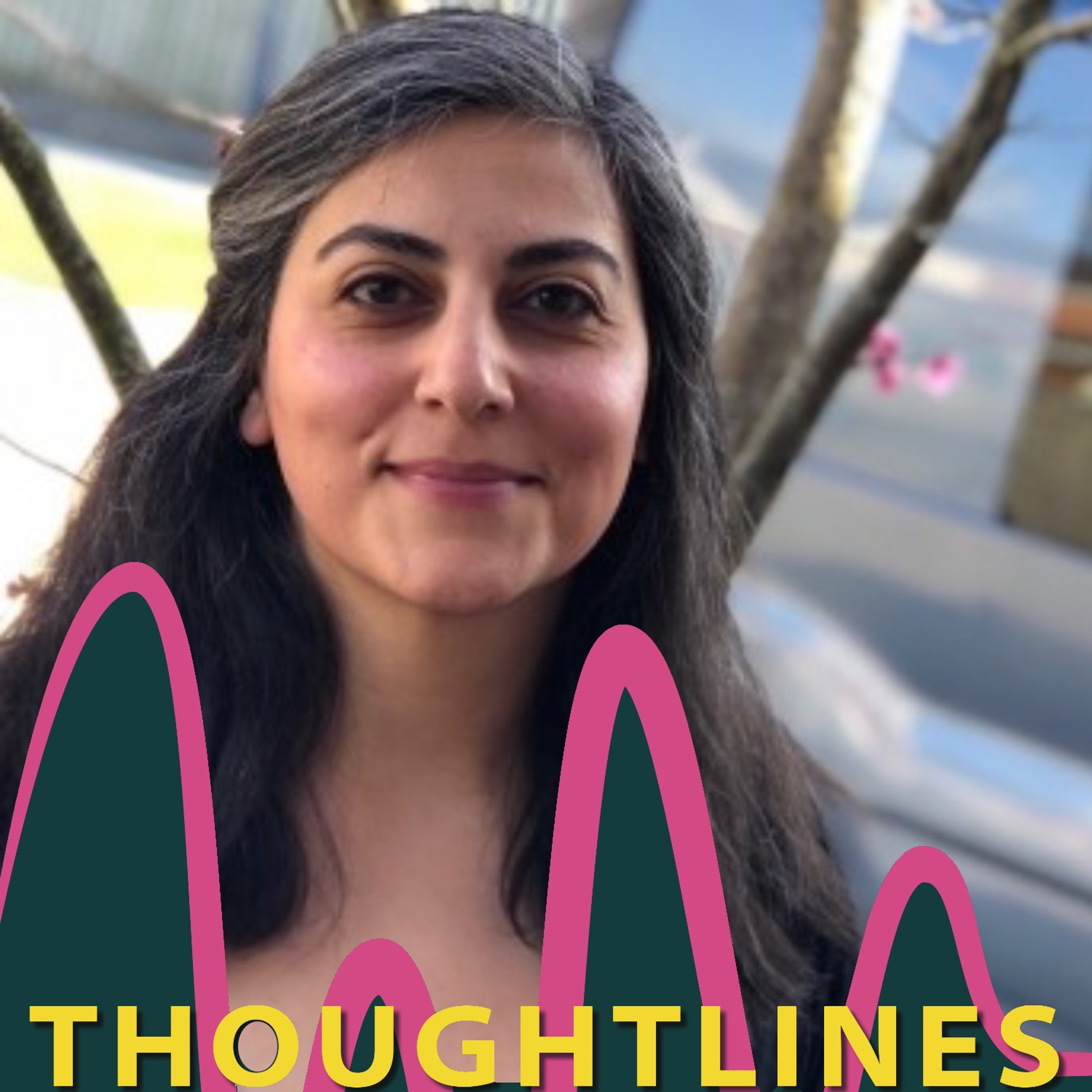
ThoughtlinesEpisode 4 - We are what we know, with Dr Inanna Hamati-AtayaIn this episode we talk wisdom, forgetting, and what we all have in common, with Dr Inanna Hamati-Ataya, the Founding Director of the Centre for Global Knowledge Studies at CRASSH.
What do the things we share, across all human history, tell us about who we really are? What are we missing? Why does the way we farm our planet need a re-think? And what on earth does the humble potato have to do with it all?
(This episode was recorded remotely, during Covid-19 lockdown restrictions)
Dr Inanna Hamati-Ataya is Principal Research Associate and Principal Investigator on the ERC-funded project ARTEFACT...
2021-04-2131 min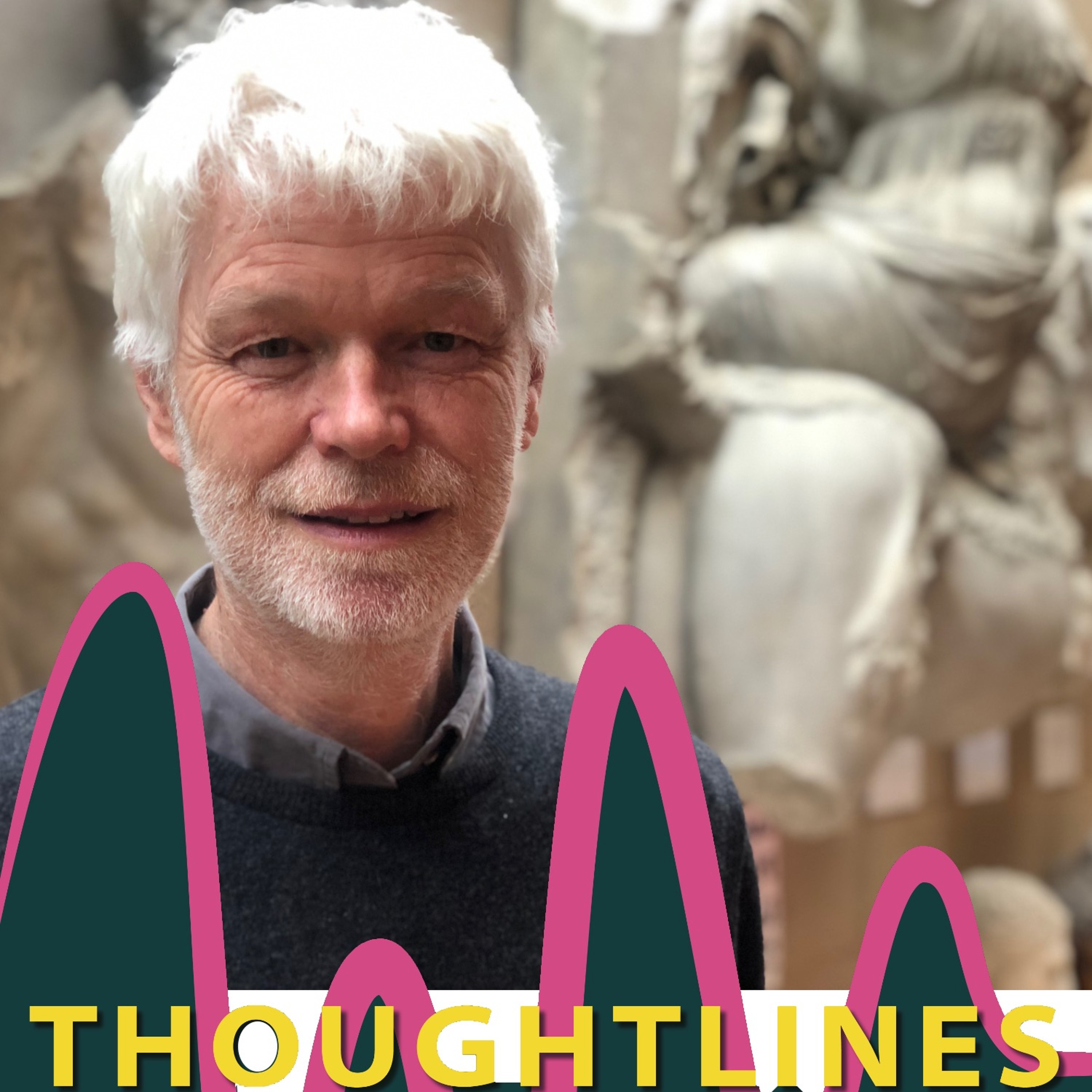
ThoughtlinesEpisode 3 - We are what we dig, with Prof. Martin MillettIn this episode we talk to archaeologist Professor Martin Millett about the ground-breaking changes in how we search, and respond to, the landscape of the past.
We hear what happens when sound artists and radar technicians start really listening to the earth beneath our feet. What it means – on both sides - to be part of an Empire. And why nothing really beats the academic excitement of getting your hands dirty.
For more on Professor Millett's radar discoveries in Falerii Novi in Italy, mentioned in this episode, please click here:
The city rises: Cambridge archaeologists reveal an entire Roman city wi...
2021-03-1733 min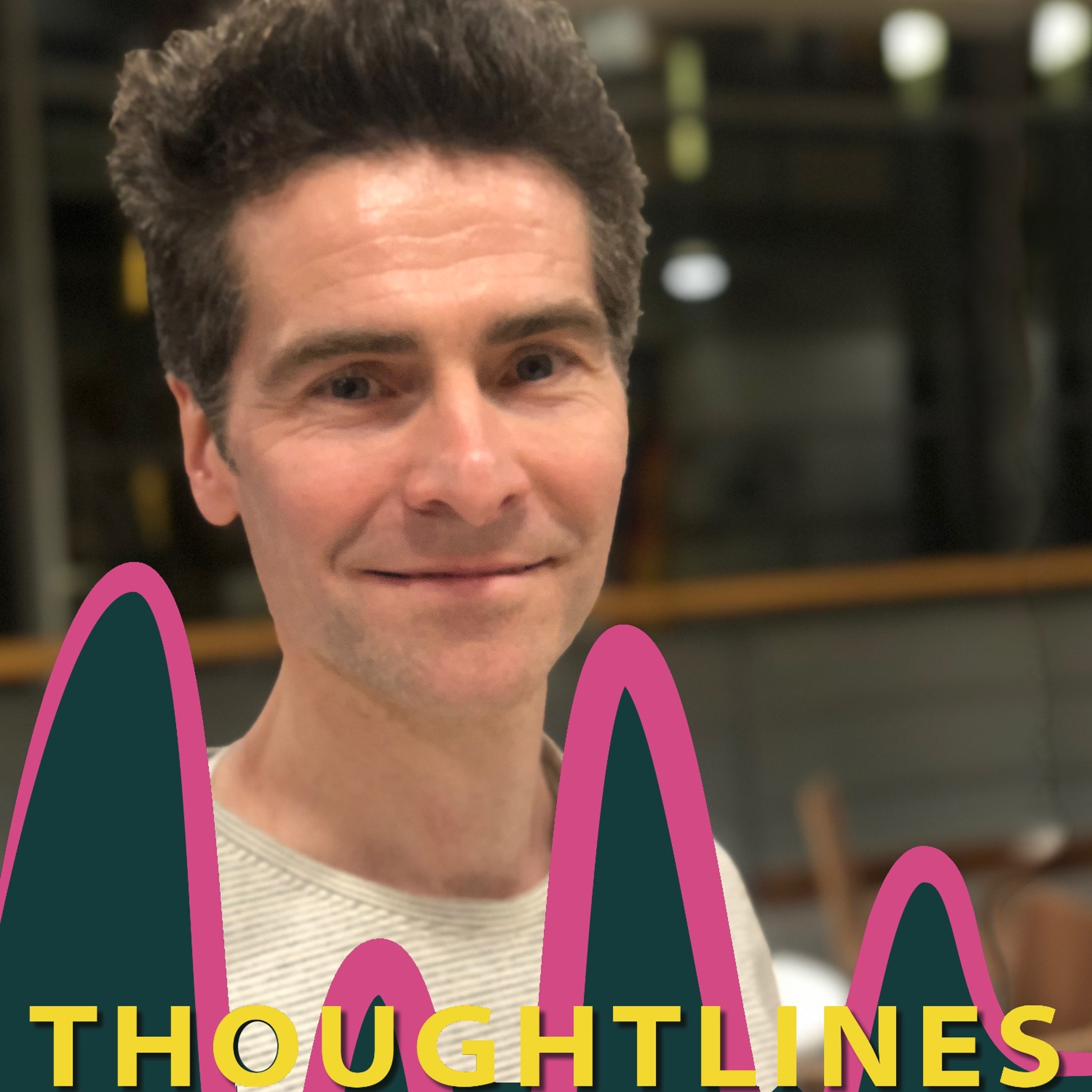
ThoughtlinesEpisode 2 - We are what we code, with Dr Marcus TomalinIn this episode we talk tech with Digital Democracy expert Dr Marcus Tomalin.
Can our computing systems be better and do better? How can we – everyday users and professional coders - spot the hidden biases and fleeting programming decisions that make a lasting difference in ‘real’ life?
And can we even imagine what we’ll be asking Alexa ten years from now?
(This episode was recorded before Covid-19 lockdown restrictions and when face to face teaching at the University of Cambridge was still occurring)
LEARN MORE:
To hear Marcus Tomalin talking more about Artificial Intelligence and Social Change please click here:
ht...
2021-02-1729 min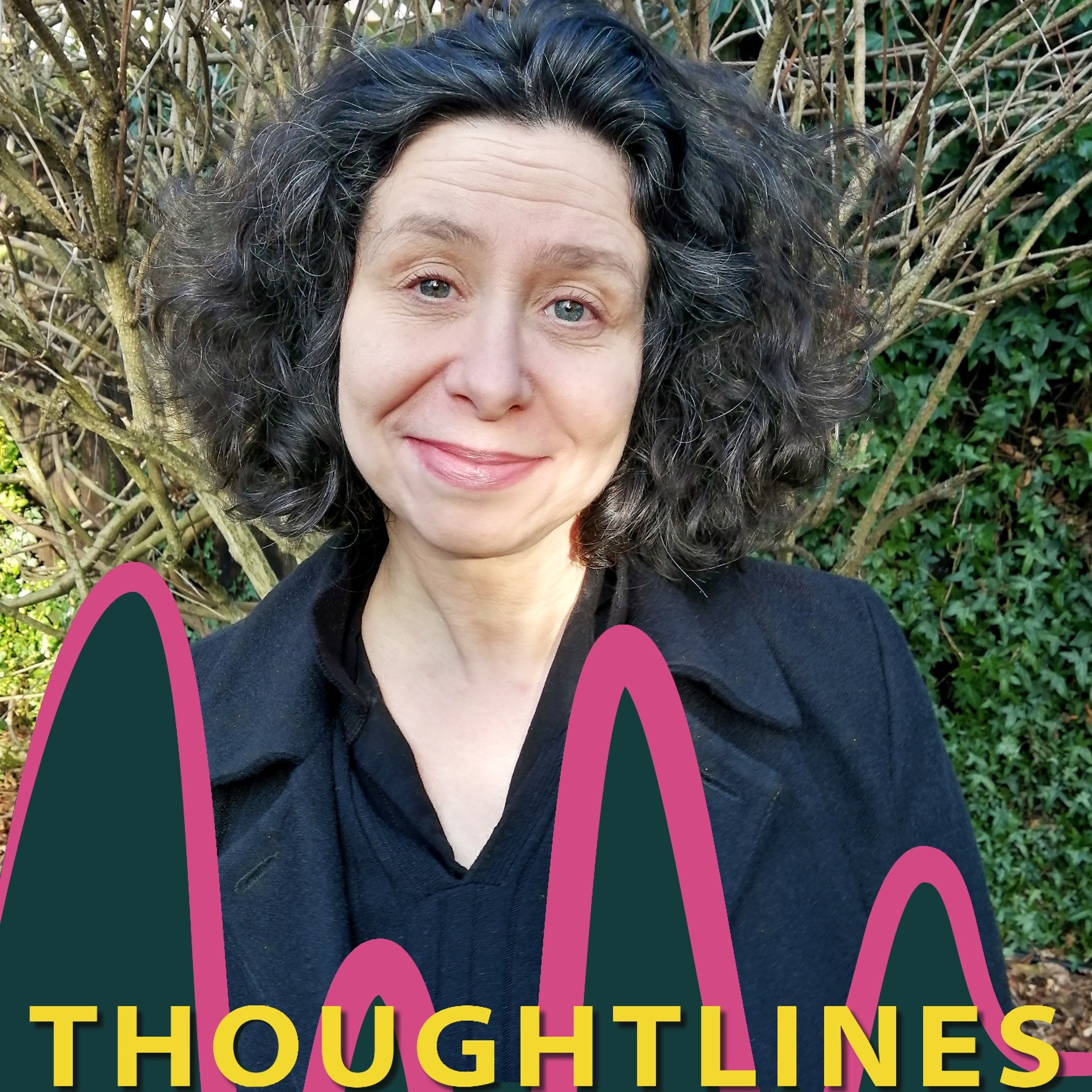
ThoughtlinesEpisode 1 - We are what we eat, with Dr Melissa CalaresuIn this episode we talk food with cultural historian Dr Melissa Calaresu. The need to nourish ourselves is an eternal, daily preoccupation for all of us, but what we eat, and why, is an altogether meatier subject.
Food is pleasure, performance, politics and even panic.
Which fruit was a full-blown fashion craze in the 1600s? What did an undergraduate Isaac Newton feel guilty about buying? And why are our own early food memories so powerful?
(This episode was recorded before Covid-19 lockdown restrictions)
LEARN MORE:
For a short film on Melissa Calaresu's 'Feast and Fast' exhibition featured in this episode...
2021-01-1930 min
AfterThought15. Conclusion Part 1: Strategies for Thinking the PresentIn this episode, (part one of our two-part conclusion), we aim to tie together – like a nice bow on a Christmas present, know what we mean? – a number of themes (“thoughtlines”) raised throughout the series that present a diverse number of strategies for thinking the present. We engage the notion of thinking strategically relative to scale, and compassionate readings as preferable to egocentric ones. We recur to the theme of “sitting with” rather than getting things done, a spiritual demand the ego resists. How to affirm community rather than technology; the importance of thinking in critical, two-sided terms rather than in pola...
2020-12-2229 min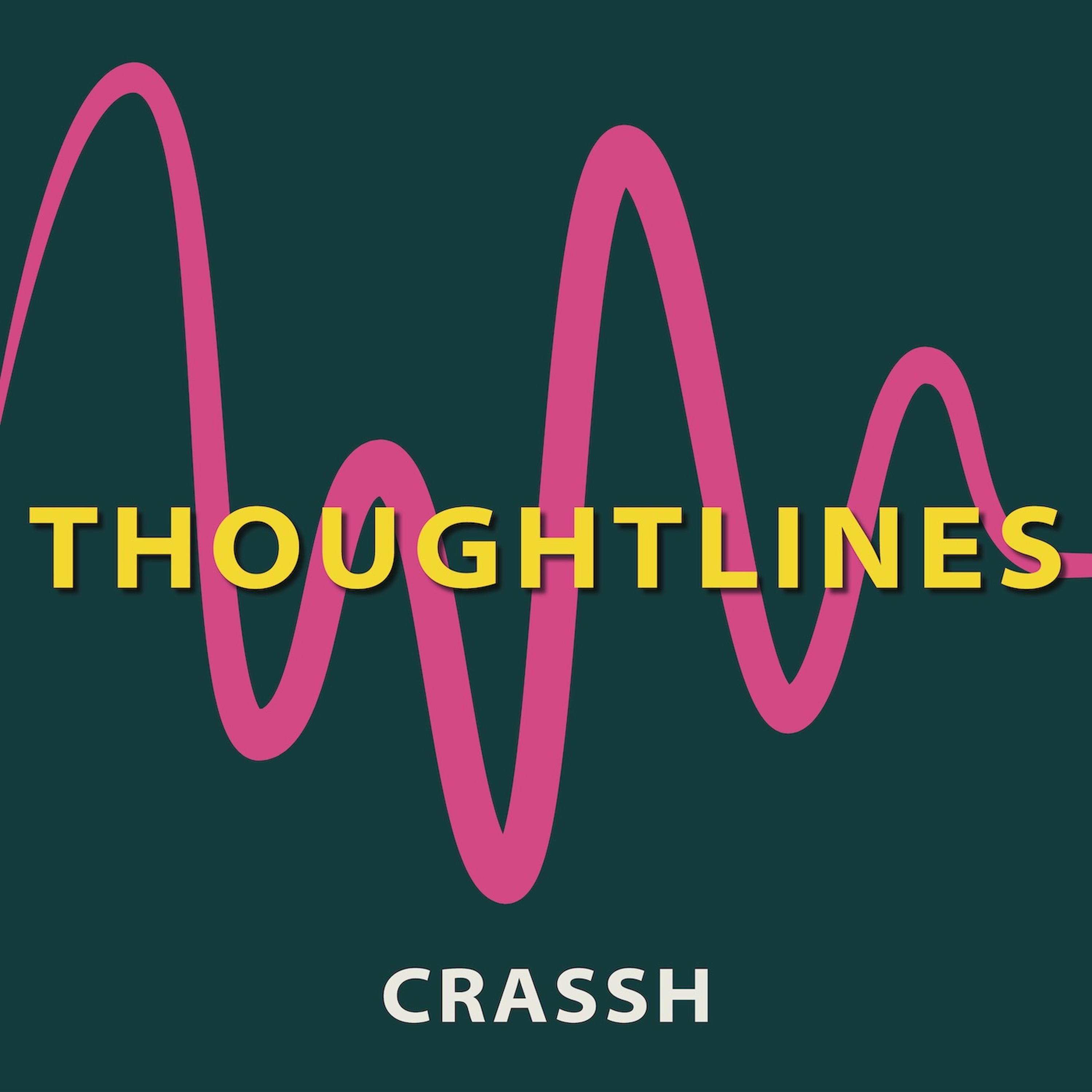
ThoughtlinesIntroducing ThoughtlinesWelcome to Thoughtlines, a podcast celebrating the best of academic thinking outside the box, from CRASSH at the University of Cambridge.
2020-12-1501 min
Lowy InstituteDistinguished Speaker Series with Senator Bob CarrAfter four months in his new role, Foreign Minister Bob Carr will deliver a speech on the direction of Australia’s foreign policy and overseas development assistance. He will speak about Australia’s strategic and regional relationships and Australia’s role in multilateral fora. Australian Foreign Minister Bob Carr was the longest continuously serving Premier in New South Wales history. He served as Leader of the Opposition from 1988 until his election as Premier in March 1995. He was re-elected in 1999 and again in March 2003 securing an historic third four-year term. He retired from politics in 2005 after over 10 years as Premier. During these...
2012-07-271h 02